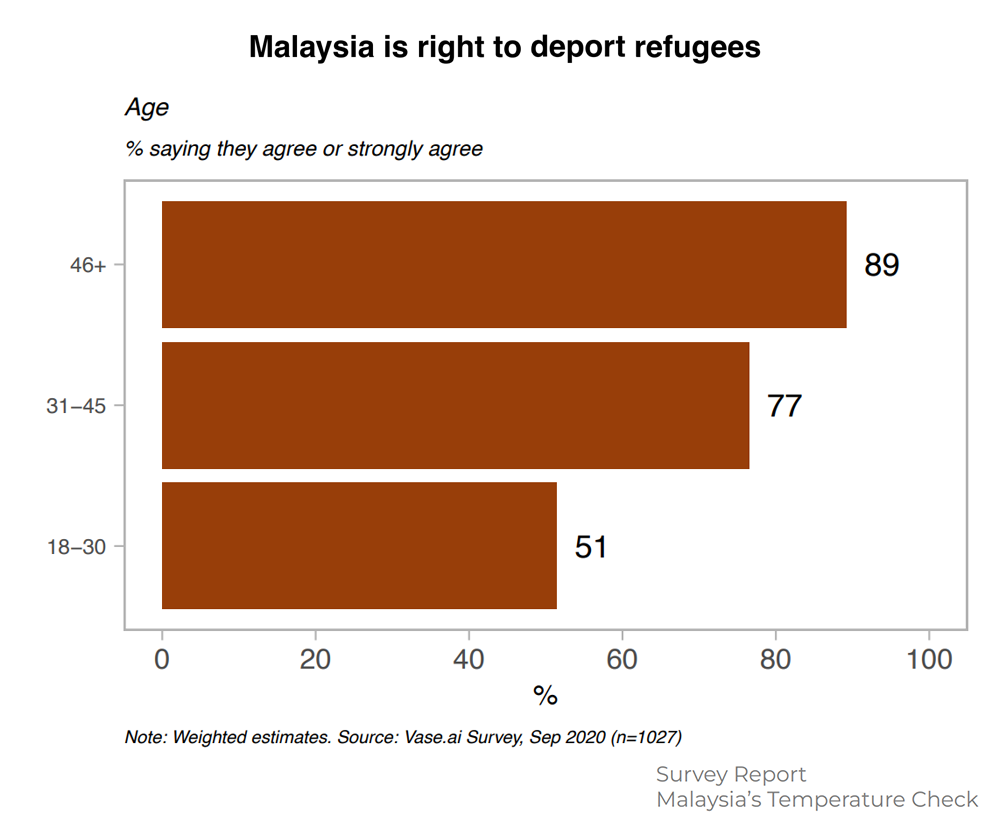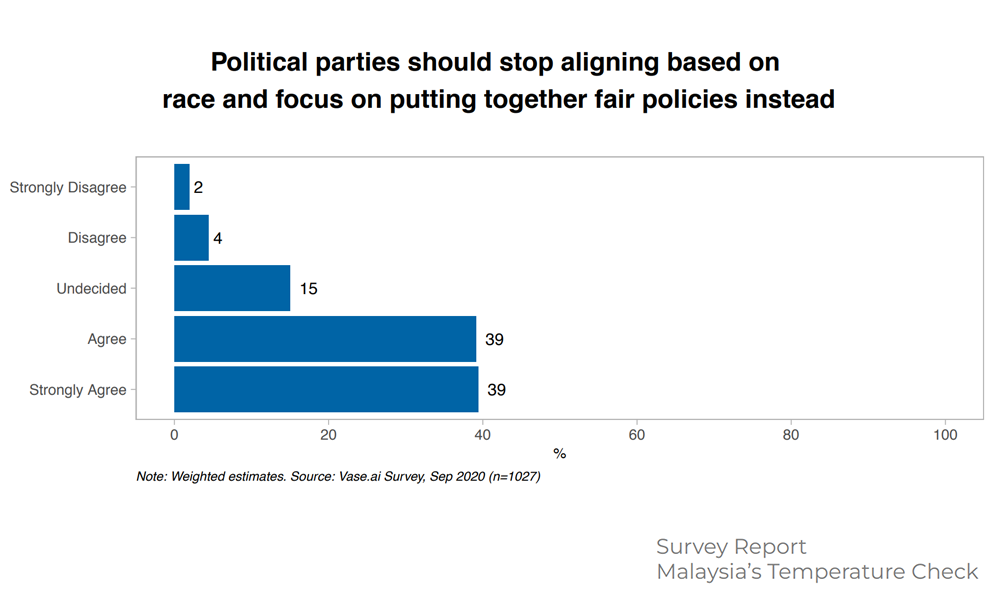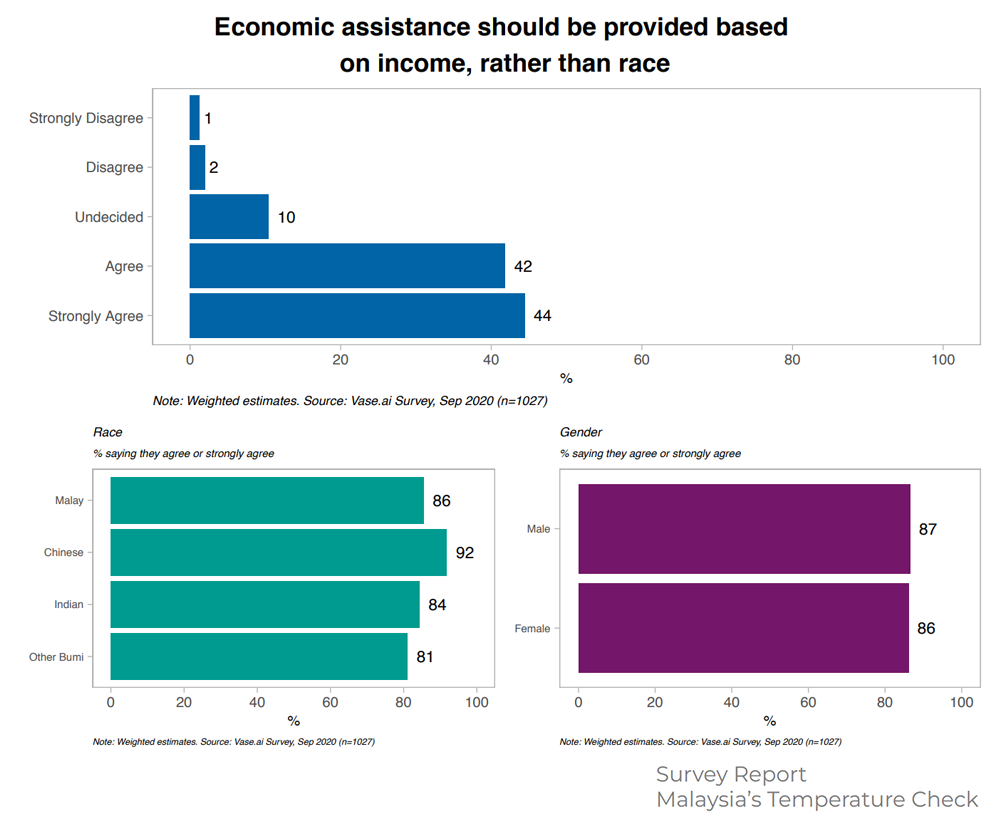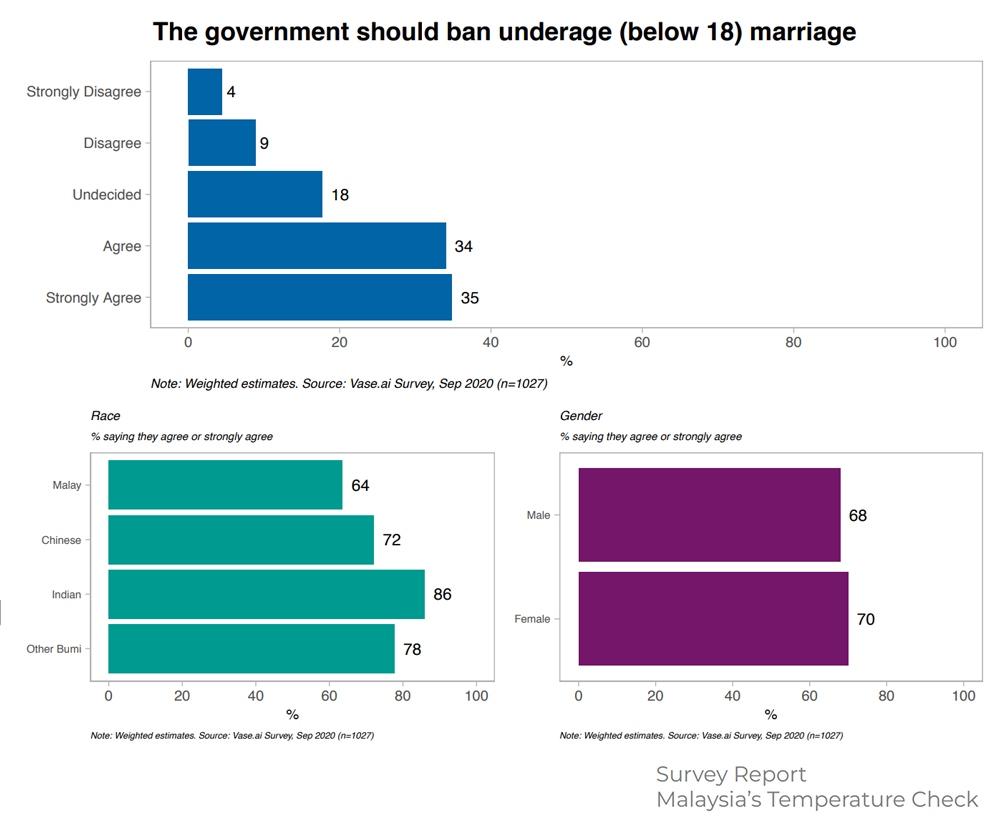
A recent survey indicated a slight breakaway among young Malaysians from conventional attitudes towards contested social issues.
Called “Malaysia's Temperature Check 2020”, the survey polled participants across age, gender, race and household income on a range of hot-button topics.
Asked if the government was right to deport refugees, about half (51 percent) of those aged 18 to 30 agreed. In contrast, most of those aged 46 and above (89 percent) agreed with deportation. Those aged between 31 to 45 also largely agreed (77 percent).
On whether homosexual intercourse should be decriminalised in Malaysia, 40 percent of youths indicated they agreed. Just 25 percent of those aged between 31 to 45 agreed while 33 percent of those aged 46 and above answered in the affirmative.
As for whether the death penalty ought to be abolished, 28 percent of youths said they agreed. Just 17 percent agreed among those aged 46 and above while 20 percent of those aged 31 to 45 agreed.
Racial divides persist
A joint effort between pollster Vase.ai with NGOs Undi18, Architects of Diversity and Women’s Aid Organisation, the survey also showed responses were divided along racial lines.
This was most apparent between Malays and non-Malays for certain race, religion and education-related issues.
Asked if the Malays deserve special rights as bumiputera, 85 of Malay respondents agreed. In comparison, 30 percent of non-Malay bumiputera agreed while few Indian (14 percent) and Chinese (10 percent) agreed.
On whether hudud laws should be implemented in Malaysia, 68 percent of Malay respondents agreed. This was in sharp contrast to the Chinese (11 percent), non-Malay bumiputera (25 percent) and Indians (26 percent).
Asked whether vernacular schools should be abolished, more than half of Malay participants (56 percent) agreed. Some Chinese (nine percent), Indian (15 percent) and non-Malay bumiputera (24 percent) also agreed.
Despite these divides, most survey participants indicated they wanted political parties to move away from race and religion and focus on formulating fair policies (see chart above).
Across all racial, gender and age categories, agreement on this surpassed 76 percent.
Same page on economic issues
Respondents across the board also concurred on economic and employment issues.
Across all categories, they agreed that there should be a monthly allowance provided to all Malaysians.
They also agreed that the minimum wage should be increased to above RM1,200.
Furthermore, most agreed that economic assistance needed to be income-based rather than race-based (see chart below). On this point, agreement among the races surpassed 80 percent and was highest among the Chinese (92 percent).
Another issue respondents agreed on was that the government should prioritise citizens before immigrants.
Agreement was highest among those aged 46 and above (95 percent), non-Malay bumiputera (92 percent) and Malays (89 percent).
Similar view on rights, social media
When asked if the government should restore and protect Orang Asli land rights, 84 percent of respondents across the board agreed strongly.
Across age, race, gender, household income and region; most participants agreed that marriage involving those aged under 18 should be banned (see chart below).
The survey also registered agreement (82 percent) for the government to regulate social media sites to prevent misinformation.
The same trend was observed when asked if the government should enforce social media firms taking down offensive content and impose penalties on those who share such content.
Conducted online between Sept 2 and 3, the survey sampled 1,027 adult Malaysians following national demographic categories. The active quota sampling method was used.
In the survey's report, it admitted that those over 65 were underrepresented due to “lower rates of Internet usage”. It also excluded responses from Labuan. Putrajaya and Perlis due to small sample sizes. - Mkini







No comments:
Post a Comment
Note: Only a member of this blog may post a comment.